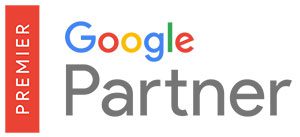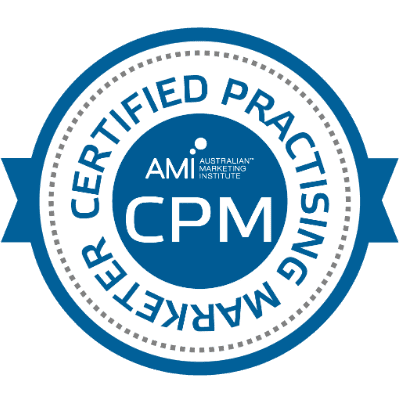Working in the SEO/SEM industry can be very rewarding. Many times a problem can be solved simply with a little online research, and posts on a few forums.
All too often, however, some people put too much stock in the posts they see, ultimately negatively impacting their SEO efforts.
In this article, I look at some of the positives and negatives of online SEM forums and attending SEM and SEO conferences.
As part of my daily routine, I visit a few of the search engine forums out there to see what people are talking about and what some have noticed.
Sometimes I come across real gems – stuff I can put away for later, or use with a client I’m currently stuck on.
But more often than not, the information you see is really misinformation in some cases. As such, one must be extremely careful in relying what is said on one forum.
A good example is when the Google Dance used to happen. It was at this time that webmasters would watch Google and begin to sweat when their rankings dropped one or many positions. Some webmasters literally didn’t sleep during the days of the dance.
And many times you would visit some of the popular forums and see all kinds of conjecture and speculation as to what Google was doing.
My favourite posts were “on my website this happened, so this HAS to be what Google is doing.” Yet all too often this poor soul was basing his ideas on the effects he witnessed on only one website.
And that is a flaw with these forums. It’s not that the forums themselves are flawed, it’s that in some cases people posting on them make bold statements about the current state of the engines with little or no evidence.
They base their “fact” on observations made on one or two websites over the course of one or two days.
Generally, these types of posts are quickly debunked as myth, but sometimes they do more damage than good. That’s because there are others out there who know even less and read these posts and take them as the truth when in fact they are mere speculation.
And it’s not just forums where this happens.
Many of the big forums now have events planned – conferences and the like – where you can now go hear those that post regularly also speak.
But it’s not the speaking engagements I have a problem with, it’s the speculation that happens before and after the presentations that worries me.
I can’t tell you how many times I’ve had clients come back from various conferences or Search Engine Strategy forums with their heads full of ideas on how to move forward, even though I know many of these “theories” to be false, or at least flawed.
You see, there’s lots of socializing that happens at these events.
You may be sitting down to their lovely boxed lunches and strike up a conversation with the person next to you. Before you know it you are sharing ideas, and the next thing you know he’s solved all your problems. Or at least you think he has.
But how well do you know the guy you’ve just been talking to? And how can you be sure that what he’s told you is correct?
This is what I’ve dealt with in the past and many times it’s the forums and conferences that can undo over 3 or 4 days what it has taken you to build over months and years – that is an appreciation from your clients that you do indeed know what you are talking about.
Here’s an example:
We once had a client from a major University. Things were sailing along quite nicely, changes were getting made and the site was beginning to rank quite well.
The client thought it would be a good idea to attend a webmaster conference. We recommended that she attend, but try not to place too much emphasis on what she had heard. This was because the conference she was attending wasn’t one of the “big” ones like WMW or SES, but more of a regional one put on by a local SEO company.
Yet she came back full of ideas on how to “help” me do my job better.
Things like turning off her URL rewriter because “search engines index dynamic content just fine.” and removing optimized meta tags because “search engines don’t use those things anyway” and halting all link building efforts because “building links can get you banned.”
Well, you can guess what happened next – the site stalled in the search engines and didn’t improve much after that. We pleaded with her to let us get back on track, but she was unwilling.
In the end, the client cancelled unhappy with the results, but would never allow us to do the job we were hired to do. All because she took what she had heard sometime during the conference as the truth to end all truths.
Now I’m not saying that what she was told at the conference was wrong. In fact, I’m inclined to believe that what she was told was mostly right. However somehow between attending the conference and coming back to work with us, she had determined that she somehow knew more than I did about SEO.
Chances are she likely distorted what she had heard. Instead of “search engines don’t use meta tags” she probably heard “most search engines don’t look at meta keyword tag.“
And instead of “link building will harm your rankings” she probably really heard “improper link building can hurt your rankings.” I feel she misinterpreted or otherwise twisted what she had heard into something else.
So if you are site owner, please don’t assume everything you read/hear in the industry spaces is correct. If anything I’ve found that you must question everything. Even if it’s something that a well-known industry expert has said, you still owe it to yourself to question it. After all, if the “expert” is wrong, and you’ve based your online marketing decisions on what they’ve said, there’s only one person to blame – and it isn’t necessarily the expert.
Similarly, if you’ve read something in a forum, be sure to double and triple-check it against a few other reliable sources. For example, if you’ve read something at a forum, don’t be afraid to question the ability in the Searchenginewatch forums. Go a step further and question it in a few more places until you get a satisfactory answer.
Because while there is a whole lot of grey in our industry in terms of what works and what doesn’t there are some hard and fast rules to SEO. Ones that will help and ones that will hurt when applied to your site.







